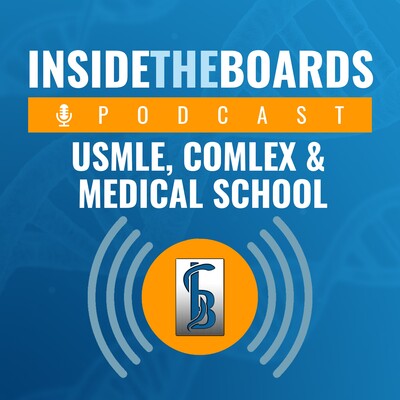Miscellaneous
Today’s guests are Dr. Rachel Salas and MS3 Kori Porosnicu Rodriguez. You can find them on Twitter @RachelSalasMD and @KoriPoRodri Dr. Salas is a Professor in the Department of Neurology at Johns Hopkins Medicine with a joint appointment in the School of Nursing. She is the Director of the Neurology Clerkship. She earned her medical degree at the University of Texas Medical Branch at Galveston where she also completed her internship and residency. After her chief year, she came to Baltimore to complete her 2-year sleep medicine fellowship. In 2018, she earned a Master of Medical Education at the Johns Hopkins School of Education. Dr. Salas is an executive member of the Alliance for Clinical Education. She is also the founder and Co-Director of the Osler Apprenticeship Program (in Neurology), a medical education research program for senior medical students and the PreDoc Program, a premedical college program. Dr. Salas is a certified strengths coach and uses a strength-based approach and coaching to connect to, support, and develop those involved with her educational mission and in her clinical practice. She is the director of the Interprofessional Education and Collaborative Practice for the School of Medicine at Johns Hopkins. Nationally, she is a Co-Director for Interprofessional Teaming for the High Value Practice Academic Alliance where she works to promote teamwork through a strengths-based approach. Dr. Salas is a 2019-21 Josiah Macy Scholar and was selected as one of the 2019-20 AMA Health Systems Science Scholars. In the wake of COVID-19, the Johns Hopkins (JH) Neurology Education Team, composed of educators and senior medical students, designed a two-week virtual elective titled “Virtual Patient Rounds in Neurology.” The goal was to provide students with a practice-based approach to learning telemedicine, while offering a robust virtual Neurology lecture series (JHNeuroChats) during a time when clerkships were cancelled. Global medical education leaders were invited as “Virtual Visiting Professors” to present live one-hour JHNeuroChats, with topics ranging from neurological disorders to interprofessional collaborative care and health systems science (HSS). Sections from this episode include: Embracing telemedicine and translating exams for telemedicine visits Developing the “Virtual Clinical Elective in Equitable Healthcare” and how it incorporated Health Systems Science Using medical devices for research With support from Elsevier, and produced in collaboration with the American Medical Association, the HSS series seeks to broaden students’ understanding of the nature of medicine, medical education, and what separates them from other human endeavors. Medicine is not a “pure science,” a kind of “applied biology.” Rather, it is fundamentally an art that uses science. As a discipline, Health Systems Science considers those ideas and concepts which are integral to medicine as a profession but don’t fall under the domain of the clinical or basic sciences. The National Board of Medical Examiners includes HSS topics in its USMLE Content Outline and even offers a dedicated Health Systems Science subject examination. Each episode of this series will include on-the-go learning with practice exam questions explained by expert guests. This series is sponsored by Panacea Financial: Banking Built for Doctors, by Doctors. ITB and Panacea share a common goal which is to make med school better. Panacea Financial is designed to handle the unique situation of medical students. We hope you will check them out to see how they can make your life easier. Learn more about the series and view the content outline on the ITB website. https://insidetheboards.com/Health-Systems-Science/. You can also listen to episodes in the ITB app organized into an HSS Playlist.

